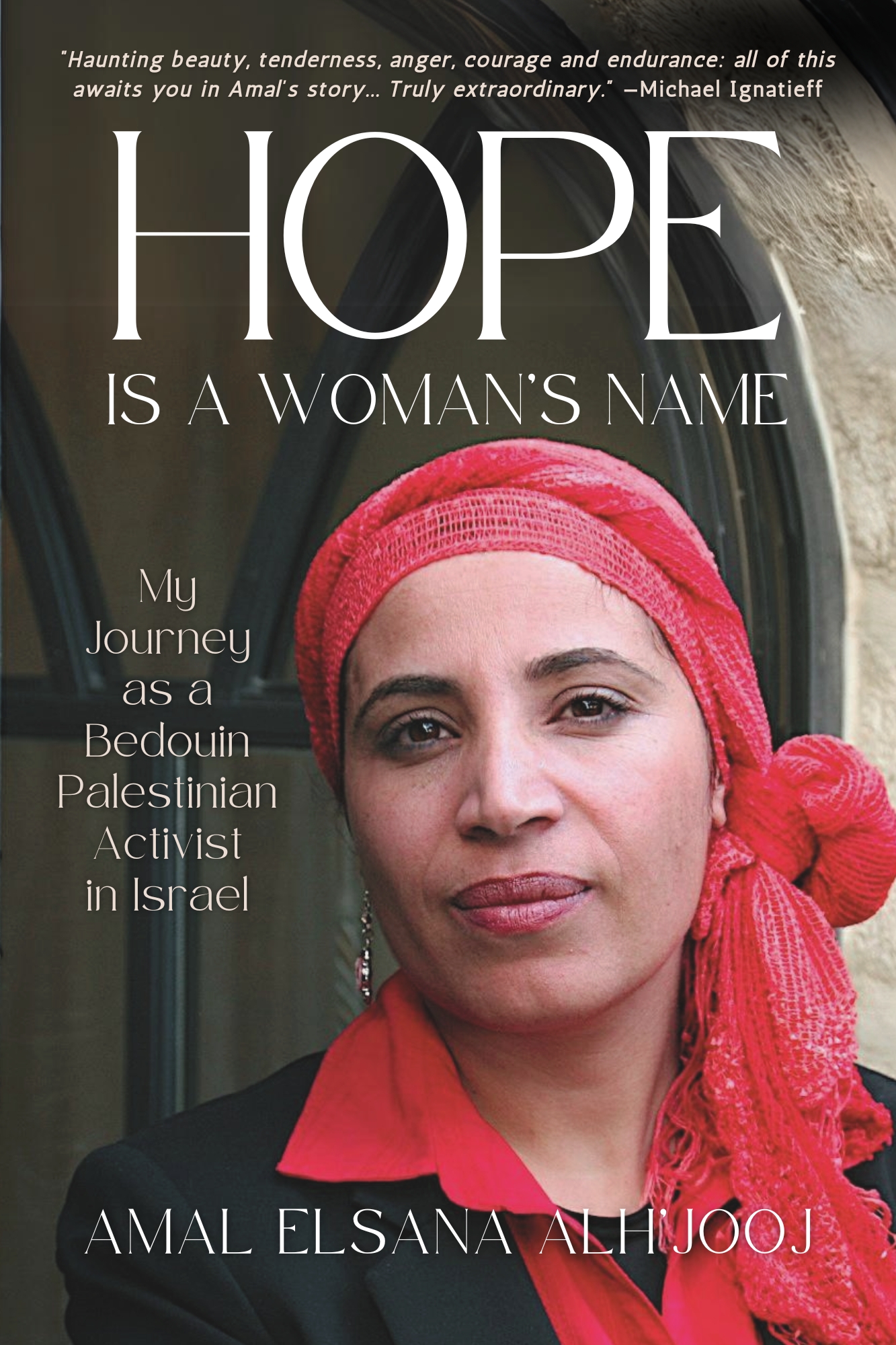At birth, Amal’s father looked at her and said, “I see hope in her face. I want to call her ‘Amal’—meaning ‘Hope’—in the hope that Allah will give us boys after her.”
The fifth daughter in a patriarchal society and an indigenous Bedouin in a Jewish state, Amal Elsana came into this world fighting for her right to exist.
A shepherd at the age of five, she led her flock across the green mountains of Laqiya, her village in the Negev in southern Israel, and later ran literacy classes for the women in her tribe in her early teens, the beginning of a lifelong career organizing people to promote policy change for Israel’s Bedouin, a minority within the Palestinian minority. She later established economic empowerment programs for marginalized women, helping to found an Arab-Jewish school, and creating organizations to promote shared society.



